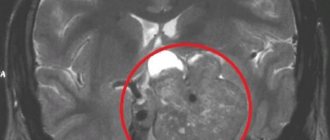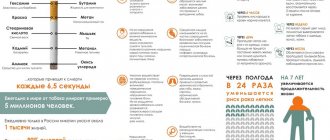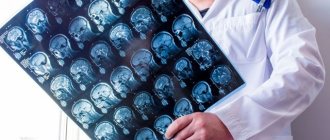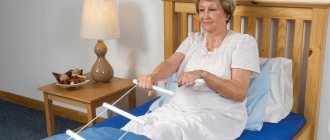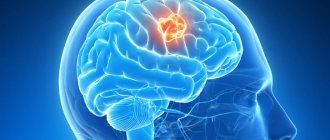Return to work
The negative impact of a stroke on the patient’s condition depends on how severe the disruption of blood circulation in the brain was during the stroke and on the source of the lesion - the more the brain is damaged, the stronger the disturbances in mental, intellectual, motor and motor functions will be.
As a rule, the restoration of speech, motor and visual functions occurs gradually - the first improvements appear already after three days after the stroke.
But we must not forget that rehabilitation is a long process, and if you give the body a load too early, there is a risk of another stroke.
The patient's involvement in work activity should be gradual. After discharge and completion of the main recovery process, it is better to switch to a reduced schedule or switch to working from home.
Important! In order to accustom your body to work, you can start working a little in the country. This way, moderate physical force is used and the body gains endurance.
Is it possible to work after a stroke?
How do I need to fill out an application, what should I write so that the court makes a decision in my favor? I wrote a statement about an administrative violation. There was a refusal due to the fact that the bruises were allegedly the result of him blocking my hands. The refusal was written before the forensic expert's conclusion. Bruises and abrasions on my knees. The iliac region, and on the arms are connected with the fact that I was covering myself so as not to get hit on the head and face. There are neighbors who are witnesses. He gave an explanation which was a complete lie. The deadline for appeal has already passed. In general, the initiator of the conflict was my mother, who had long expressed her property rights in relation to this apartment and stated that it was too fat for me to live in such an apartment and said that she would not let me live with my son and told him bad things about me. I bought the apartment with an additional payment after selling the one my grandmother gave me. She is my mother's mother-in-law. Grandma said she was leaving me everything because my parents wouldn’t give me anything. They gave everything to my brother. After my father’s death, I did not claim his inheritance, because my grandmother gave me everything. But my mother did not calm down and apparently made plans for many years and did not abandon her plan to deprive me of this apartment. Before that, she also tried to force me to give the car I bought to my brother so that he could go to work, because his was already old. When I refused, I received rude abuse and she even waved a knife in my face. Which she was cutting something at that moment. After that, I didn’t communicate with her for 5 years. Recently, she began to look for ways to reconcile and asked to come to my birthday party; of course, I didn’t refuse, because I thought that she realized that she had already forgotten everything. We seemed to have made peace and I let it slip that I had given the apartment to my son, there were reasons for that. When my son kicked me out, the neighbors came out to scream and took me to my mother, because I was completely naked and had nowhere to go. But my mother began to blame me for everything and kick me out of her apartment. She began to declare that it was I who got my sons. He is good, but I am unbearable, I need to be sent to a mental hospital. She insulted me in every possible way. Humiliated. She said that no one loves me and that no one needs me and that it would be better if I didn’t exist at all. That the son supposedly needs to get married. For this you need separate housing. Although he didn’t have a son and a girlfriend and in general he is a homebody and doesn’t really know anyone, but the most important thing is that he at least has to work in order to start a family. But only I worked, and he was not very keen on this, which is why we had a quarrel. He complained to his grandmother, who always covered for him in everything, and she advised me to kick me out since the apartment was his. which he did. In general, he was really very good; in childhood there was nothing even to scold him for. Until his mother took him to live with her after the death of my father. After which he began to hate me and show aggression. I raised my hand 2 more times before this incident. He stated that I stole my brother’s apartment. Although this is complete nonsense. This is what his mother instilled in him. After my mother kicked me out, I had to wander around among friends for several days. But everyone has their own life and I couldn’t stay with them all the time. I had to go back to my mother. Since she organized it, it’s natural. My son took money from me, 50 thousand rubles, then gave me 20 thousand rubles, promising to pay 20 thousand rubles every month, but he didn’t give me anything else. Currently I don’t know anything about him at all for 3 months. As I understand it, he is forbidden to contact me so that I cannot explain the whole essence of what is happening. My mother kept me for almost 2 months. while my brother and mother were trying to sell the apartment. But they couldn’t do it. Because she is under arrest for a utility debt and she is big, it is not easy to sell her. I managed to trick my son into getting the keys so that at least he wouldn’t be in the same apartment with his mother, who simply hates me and threatens to kill me. What should I do in such a situation? I need to return the rights to the apartment or at least make a seizure of the transactions. Is it possible to do this due to the fact that the owner does not live and is unknown where and in what condition, he may be influenced and forced to enter into an unprofitable deal. I want to bring my mother and brother to justice, if they can now be considered such at all, for humiliation, insults, and threat to life. My mother actually stated that she would kill me and I don’t consider this just words. Because she practically killed my grandmother by sending my drunken father to her, who beat her and brought her to her first stroke. After which I treated her and brought her back to normal. But they did not calm down and brought her to the second. After which she lived only a week. In general, I realized what a terrible person my mother is and she is capable of any nasty and mean things. And if she sets her mind to something, she brings it to the end. I am afraid for myself and for my son. What should I do? Where should I go with this problem? I’ve already consulted everywhere, but I haven’t heard anything other than that these are family matters and no one will deal with this. But I'm in real danger. I could be kicked out onto the street again at any moment.
When can you start working?
As a rule, the minimum rehabilitation period after an ischemic stroke is three months, after a hemorrhagic stroke - six. If the doctor and examination have determined that the consequences of the blow have been completely eliminated , you can go to work.
For some patients, rehabilitation takes years. In this case, the patient is assigned a disability, which implies either the inability to work at all, or a transition to easier work that is not associated with nervous overload.
In any case, whether a person can go to work or whether it is worth continuing treatment is decided only by the attending physician.
Patronage services "Universal"
If you need a caregiver for a patient after a stroke, become our client. Our qualified employees will help you return to a full life and brighten up the everyday life of both young people and elderly people.
Our current database includes more than 5,000 employees. Each of them has work experience, recommendations, a health book and registration in Moscow.
Based on your wishes, we will select three candidates for you. You can meet with each of them and make a choice based on personal preferences.
| Nurse type | Cost per hour | Cost per month |
| Companion | from 130 rub. | 22 - 25 thousand rubles |
| Professional | from 150 rub. | 25 - 30 thousand rubles |
| nurse | 180 - 220 rub. | 30 - 40 thousand rubles |
The “Universal” patronage service values its reputation, earned over years of work. We enter into an agreement with each client and strictly monitor compliance with its terms. If the nurse does not suit you according to any criteria, we will select a replacement for her free of charge.
We care about the safety of your property. At the request of the client, CCTV cameras can be installed in your apartment.
Assessing the possibility of returning to work
After the first stage of rehabilitation, doctors and the patient themselves determine whether such serious consequences remain as:
- disturbance of speech perception - does the patient understand the speech addressed to him, can he independently read and understand the meaning of what he read;
- loss of coordination;
- absent-mindedness, inattention;
- partial or complete loss of hearing or vision;
- difficulty swallowing food or drinks;
- impairment of motor activity.
If at least two of the listed symptoms do not disappear, there can be no talk of returning to work.
Consequences of pathology
The consequences after a stroke vary and depend on the degree of circulatory impairment, as well as on the size of the affected area of the brain.
Often, patients who have suffered a stroke develop:
- dysfunction of speech, it can become incoherent, unclear, in rare cases the patient cannot understand extraneous speech, is unable to read and write;
difficulties in coordinating the body in space;- motor dysfunction;
- memory loss or decline;
- attention deficit and absent-mindedness;
- decreased visual acuity in one or both eyes;
- difficulty swallowing;
- partial or complete deafness;
- loss of sensitivity in some parts of the body - the human body does not feel temperature changes, pain, or touch.
Therefore, after returning home, a person who has suffered this illness, one might say, begins a different life. Recovery time varies for each individual patient.
But doctors insist that home rehabilitation requires introducing the patient to simple housework or helping him find a hobby, taking into account his functional capabilities.
After all, people after a stroke are often predisposed to depression and apathy due to their inability to control their own body and be useful to loved ones. The way out of this state can be found precisely in light work, which will give confidence in one’s own abilities and speed up the rehabilitation process.
Passing a medical labor examination
The examination involves a complete examination of the patient who has suffered a stroke in order to prepare a medical report on several points:
- can a person go to work now or does sick leave need to be extended;
- if the patient is ready to work, under what conditions can he perform it;
- start date of employment;
- possibility of disability.
The examination is carried out, as a rule, by several doctors - a therapist, a neurologist, a cardiologist, and an ophthalmologist. All previously obtained ultrasound or MRI results are collected, the patient undergoes tests, is interviewed by doctors, and the neurologist conducts standard tests for reaction and memory.
Important! It is imperative to obtain an opinion from an eye doctor - after an impact, vision can be greatly impaired, so it will be impossible to return to some professions.
What doctors check first:
- Have your mental abilities been restored?
- psychological condition;
- to what extent visual and speech functions are impaired;
- muscle tone;
- state of the cardiovascular system;
- Are there any coordination problems?
If the consequences of a stroke are minor, the VTE issues a work permit. In some cases, if the patient has not fully recovered, but is ready to start work, the commission and the employer may offer an easier employment option:
- reduced working hours (for example, half the rate);
- transfer to another position with easier working conditions;
- transition to working from home or on an individual schedule (for example, every other day).
Note: If the condition of a person who has suffered a stroke does not allow any complex activity and his health is severely compromised (for example, some brain functions have not fully recovered, vision or hearing is severely impaired, limbs are partially or completely paralyzed), then VTE may not issue a work permit and recommend the patient apply for disability.
What is the difference between hemorrhagic and ischemic stroke?
A stroke is a circulatory disorder that leads to the death of nerve cells. In this case, there is a restriction of brain activity, manifested by certain neurological symptoms. According to statistics, in 70% of cases, with appropriate care, maximum recovery is possible. These numbers are also influenced by the type of stroke and the volume of the lesion. The key point is the “therapeutic window”, this is the time after the appearance of clinical signs until medical care is provided.
There are two types - ischemic and hemorrhagic. Each has its own characteristics.
In an ischemic stroke, the lumen of the supplying vessel is blocked, and the area of the brain does not receive enough oxygen and is damaged. If the zone is predominantly involving peripheral vascular branches, then after 2 or 3 months, with treatment, the lost functions return.
In a hemorrhagic stroke, the wall of a vessel ruptures and blood spreads into the tissue. If the hematoma is deeply localized, there is a danger of spreading into the internal ventricular system, which requires surgical intervention and a long stay in a neurosurgical hospital.
Both options are subject to restoration . Great importance is rightfully attached to rehabilitation, which today has achieved high efficiency.
What job can you not return to?
Even if the medical commission has recognized the person’s readiness to begin professional activity, it is necessary, in order to avoid a second blow or complications, to exclude the presence of harmful factors in the profession or at the workplace, such as:
- greatly increased or decreased air temperature;
- working for a long time on your feet or in one extremely uncomfortable position;
- the presence of stress, the possibility of physical fatigue;
- interaction with harmful, toxic substances.
That is, heavy physical labor, work as a truck or bus driver, managerial positions associated with constant stress, work as an industrial climber or foundry worker in a workshop become unavailable to patients - at least for several years after a stroke.
For example, it is possible to work as a watchman after a stroke, because it does not require much effort. But the position of a security guard, for example, in a store, is contraindicated: you need to stand on your feet for a long time and be very attentive.
Important! There is no need to rush to return even to light work, which is in one way or another associated with increased psychological stress . Any stress can cause a jump in blood pressure, which will trigger another stroke.
Working conditions provided for disabled people
If a medical examination has recognized the patient’s limited ability to work and he has been asked to work from home or under easier conditions, then they should be as follows:
- the work place should be located away from temperature changes and strong vibration;
- during the working day, the patient should not remain in one position for a long time - the place should be comfortably equipped;
- activities should exclude excessive stress on the emotional, mental and physical sphere;
- no contact with household toxins.
With severe financial difficulties, many patients earn money not only at their main job, but also at home, completing simple orders according to their profile, taking advantage of a reduced working day. This is a natural need for a person, but it is better to undergo a full rehabilitation course and prove your ability to work for VTE in a year than to expose yourself to the risk of another stroke due to overwork and stress.
Depression
Patients who have suffered a cerebral hemorrhage are very often susceptible to severe depression or apathy.
A person cannot come to terms with the fact that things that he used to do with ease (for example, driving a car, working on a computer, cooking or the usual morning jogging) become inaccessible or are given with great difficulty.
Important! If there is no support from loved ones, then thoughts about one’s own uselessness and the consequences of the blow - decreased vision, physical weakness, impaired coordination and memory - lead to severe depressive conditions.
The patient may refuse not only work, but even rehabilitation, which will inevitably lead to a worsening of the condition and further disability.
We invite you to watch a useful video on the topic:
What are the responsibilities of the staff?
A nurse for a patient after a stroke is involved in adapting the patient to home conditions and performing various rehabilitation activities. In particular, the staff carries out:
- injections, droppers;
- assistance in performing therapeutic and preventive exercises;
- performing massage;
- monitoring the human condition;
- informing relatives;
- creating a favorable psychological environment;
- feeding the ward;
- maintaining sanitary conditions in the premises;
- help in everyday life (by agreement): cooking, cleaning;
- accompaniment during walks in the fresh air.

